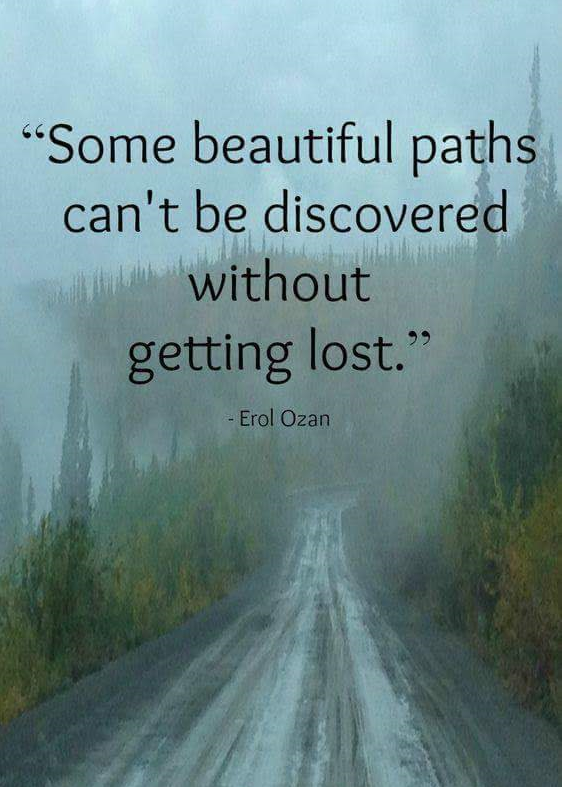I used to be spontaneous in everything that I pursue: never thinking about what to do and always going after whatever feels right. Because, you know, there is no thinking in Spontaneity. It feels like Freedom, it’s a powerful state of being where we are in the present here and now, and where our prefrontal cortex is shut down.
But then, spontaneity alone leads nowhere. Without having a plan and a specific direction in life, we will wonder forever in the ocean, following wherever our instinct takes us, without ever reaching land.
So how are we to behave in this world? Is one way of being necessarily better than the other? Are planning and spontaneity two mode of operating that are really contradictory?
Or maybe could they complement each other to make you whole?
What is Spontaneity?
Spontaneity is defined by the Cambridge Dictionary as the quality of being natural rather than planned in advance. It is a way of behaving in which you do what feels natural and good whenever you want to, rather than planning things first.
The emphasis here is on feelings, on following your instinct, rather then careful thinking and planning.
Are you really free if you act spontaneously?
There are some good reasons to pursue spontaneity, and some wrong reasons to do so. Seeking Freedom through Spontaneity is one of the latter.
If you think that spontaneity allows you to achieve a state of freedom because you are not acting according to a specific set of instructions, then think again.
You might not be acting based on a plan and as a consequence of careful thinking, but you are always acting according to something.
And in the case of spontaneity, that something is your Emotions.

When you are spontaneous, you might not be constrained by a detailed plan and a specific direction you’ve set for yourself, but you are still a prisoner of your own emotions, moods, and inner drives.
In other words, even if you are spontaneous, you are still not being free in your actions, far from it. You are always conditioned by your nature, your genetic makeup, your biology, and your raw feelings.
We might even argue that being constrained by a plan that you have set and chosen yourself allows you to reach higher levels of freedom than being constrained by nature (i.e acting spontaneously), which you don’t have control over.
So if you are looking to attain freedom through spontaneity, just stop looking.
Now that we cleared this out of the way, let’s explore some good reasons to pursue spontaneity.
3 Key Benefits of Spontaneity
1. Novelty & Exploration
“I like not knowing where I’m going”
Tilda Swinton
How are you going to discover new paths if you always know where you are going?
Spontaneity allows you to do just that: open up new routes on your path, go off the beaten track, shake things up, and add some randomness to your life.
This is important, because novelty helps you to learn new things and keep an open mind. It’s essential for growth and building character.
Remaining stuck in your routines and habits can lead to stagnation, and spontaneity helps you keep things interesting and flowing.

2. Creativity
Creativity comes from the realm of emotions and the unconscious mind. We are most creative when we are in a state of total flow doing a particular activity and when we let our emotions take the lead, which is exactly what we do when we are spontaneous.
There is simply no room for creativity in planned activity and rigid structures.
Or as Erich Fromm puts it:
“Creativity requires the courage to let go of certainties.”
E. Fromm
3. Flexibility
Our prefrontal cortex likes to plan something, expect a particular result, and see that result happens. However, this could lead to a high degree of rigidity where if something does not happen as expected, we don’t really accept it and have a hard time moving on.
Spontaneous action removes this problem all together: There is no particular plan or result we expect, and therefore, wherever life takes us and whatever happens, we can easily adapt to the new situation and take it from there.
What is Planning
Planning or Goal Oriented Behavior is, as the name suggests, setting goals for yourself and working towards them. This is at the other end of the spectrum from Spontaneity, because we are acting according to a plan, and not just based on our emotions as it is the case with spontaneous behaviour.
Obviously, the benefits of spontaneity become the limits of planning (Less Novelty, Creativity, and Flexibility in planned action). So let’s have a look instead at the benefits of planning things.
Why bother having a plan?
1. If you don’t have a plan, you will be in somebody’s else
Let’s imagine you live on an isolated island, with no one around, sipping the cocktail you just made. Then, if you don’t have a plan of where you are going, it’s totally fine, you will just be spontaneous, let yourself act on your emotions, and keep on drinking your mojito. More power to you. You will not have a plan of where you are going, and no one will be trying to pull you into their agenda.
But you don’t live on an island, and there is not just you in the world. There are billions of other people on this planet, forming a multitude of cultures and societies, and everyone is trying to influence everyone: From a young age, you are taught how to behave, taught what are considered to be worthy pursuits in life and what are not, had all sorts of ideas dumped in your unconscious mind as a child, and conditioned towards choosing particular paths later on in life. You are being pushed from an early age to follow a pre-made path that might not be necessarily yours.
This process never stops, and even as an adult, companies and media corporations are bombarding you with an infinite amount of information, trying to occupy as much of your mental real estate as possible, raging a war on your attention, and exploiting your spontaneity to direct you towards serving their goals.

So if you don’t have goals and a plan of your own, if you don’t protect your spontaneity and channel it to achieve your own objectives, your spontaneity will be stolen, and you’ll end up like a clog in somebody else’s machine.
2. A plan gives you the Freedom to reach new heights
Getting that dream job, having a successful career, getting fit and healthy, becoming world-class at what you do, whatever you deem important to achieve is simply not going to happen without a plan.
Leaving things to chance for the big and important aspects of your life without planning and careful thinking will obviously lead to random results, and random results could be anything: You might find yourself with outcomes that are close to who you are and your values, but you might just as much find yourself with the complete opposite of that and end up depressed for the rest of your days.
So why would you do that?
With a plan, and the right amount of discipline to follow through on it, you can achieve whatever meaningful outcomes you want to get in life. And even if you don’t exactly reach those meaningful goals, you will have at least made progress towards a valued direction. And that is much better than leaving things to chance.
A plan is what allows you to reach new heights and turn your aspirations and ambitions into a practical path that you could take.
A plan gives you the Freedom to become the person you want to be. It transcends your genetic programming and natural dispositions and frees you from the chains of mother nature: Unlike a dog who will always be a dog because he’s trapped within nature itself, armed with a plan and self-discipline, the door is wide open for you.
How to get the best of both Spontaneity and Planning
1. Plan to be Spontaneous
Planning to be spontaneous means that you already plan things first and have a specific direction in life, but you also make sure to incorporate periods of spontaneity into your schedule.
This way, you gain the benefits of both modes of behavior: You have meaningful goals that you are striving for, but you also leave room for novelty where you go out there, explore new lands, and come back with what you’ve learned.
Or as Alan Dean Foster puts it:
Spontaneity is one of the joys of existence, especially if you prepare for it in advance.
Alan Dean Foster
Examples:
- You keep every other Saturday as a free day without planning anything and let yourself go wherever the day takes you.
- You go on a random adventurous trip once in a while without planning anything in advance.
- On some occasions, you just throw away what you’ve planned for the day, and you go ahead and do something totally different (This one might be particularly hard for the fervent planners out there)
2. When your plan doesn’t work out, Be Spontaneous
Let’s face it: We don’t always reach our goals, and our plans don’t always work out as expected, and that’s OKAY.
That’s when our spontaneity pays off: We don’t get stuck in wanting things to be as we wanted them to be, we are able to reassess the situation and set a new direction, and we flexibly swing from an older plan to a new one. But we are still operating within a planning mindset.
When we see that our plan is not working, that the reality is not aligned with our expectations and will probably not, we need to be able to stand still and firmly say: “F*** it, this is not working, and I’m moving on”.
- The relationship you’ve been into for years and planned to stay into for the rest of your life is no longer working however much you tried? You move on.
- Your career is not getting you to where you want to go, even if you’ve planned for it and invested effort and countless of hours in it? You move on.
There lies the true power of spontaneity, not in living a care free life and chasing butterflies, but in having the courage to move on when needed and explore new paths.
Having the courage to let go of what you thought should happen to leave room for what could happen.
You have the opportunity to be alive and exist in this world. It’s first and foremost an opportunity to change, develop your character, and explore new ways of being.
So if you are a planner, get out of your comfort zone, and learn to be spontaneous. A world of opportunities will open up for you.
If you are the spontaneous type, set some boundaries and directions to yourself, and you will reach new heights in your life that you’ve never imagined possible.
Ultimately, life is a quest for growth and expansion, and to grow, you have to plant new seeds.
Stay in the loop







